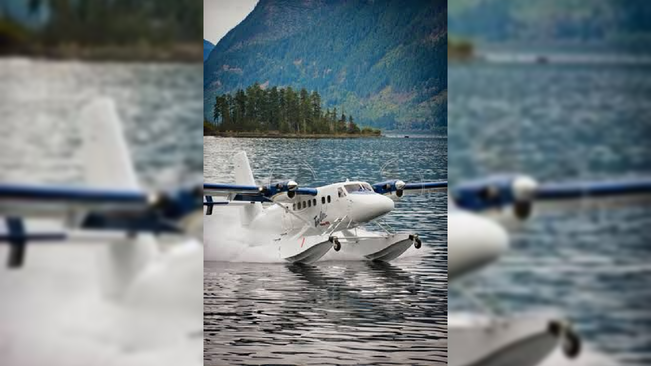The seaplane, which took off from Vijayawada, touched down at the Bolgatty backwaters in Kochi at 2:30 p.m. on Sunday.
Tourism Minister P.A. Muhammad Riyas will officially flag off the trial seaplane service from Bolgatty to the Mattupetty reservoir near Munnar at 9:30 a.m. on Monday.
This marks a major milestone in Kerala’s ambitious plan to link its scenic waterways through aerial routes. Cochin International Airport Limited (CIAL) has played a crucial role by providing technical expertise and infrastructure for the seaplane project.
With its extensive network of rivers, lakes, and lagoons, Kerala is well-suited for seaplane tourism, offering travellers a unique experience of the waterways combined with the thrill of flight.
The new seaplane services are expected to open up fresh tourism avenues, enabling visitors to enjoy stunning aerial views. Kerala, famed for its backwaters and extensive coastline, stands to gain significantly from this tourism innovation.
This initiative is anticipated to boost tourism and contribute to Kerala’s economic growth by creating jobs and improving connectivity to some of the state’s most remote and scenic areas.
Tourism department officials highlighted that seaplanes offer the advantage of large windows, providing passengers with breathtaking views over Kerala’s landscapes, particularly the Western Ghats and Munnar.
The amphibious aircraft, capable of taking off and landing on both land and water, can carry up to nine passengers. While the tourism sector is enthusiastic about the seaplane project, Kerala faces challenges in making the initiative sustainable in the long term.
The seaplane project has been introduced under the Civil Aviation Ministry’s Regional Connectivity Scheme (RCS) UDAN.
Kerala Tourism had proposed launching seaplane services from various locations, including Kovalam, Ashtamudi Lake, Kumarakom, Idukki Dam, Mattupetty Dam, Punnamada, Malampuzha Dam, Banasura Sagar Dam, and Chandragiri River in Kasaragod.
The government identified these water bodies for seaplane operations after the Civil Aviation Ministry simplified regulations set by the Directorate General of Civil Aviation (DGCA).
These changes allow non-scheduled operators to enter the market by eliminating the need for waterdrome licences and easing compliance requirements.
Notably, in 2013, the Kerala government invested Rs 14 crore to set up waterdromes on Ashtamudi and Punnamada lakes. However, the project was halted due to protests from the fishing community, primarily led by pro-Left unions.
According to sources within the Kerala government, the state had considered a proposal from a private operator to link four airports and several major water bodies, including those in Kochi.
The operator quoted Rs 54 crore for a two-year contract to provide a four-hour daily service connecting these locations, but the state has not yet made a decision on this proposal.
--IANS















